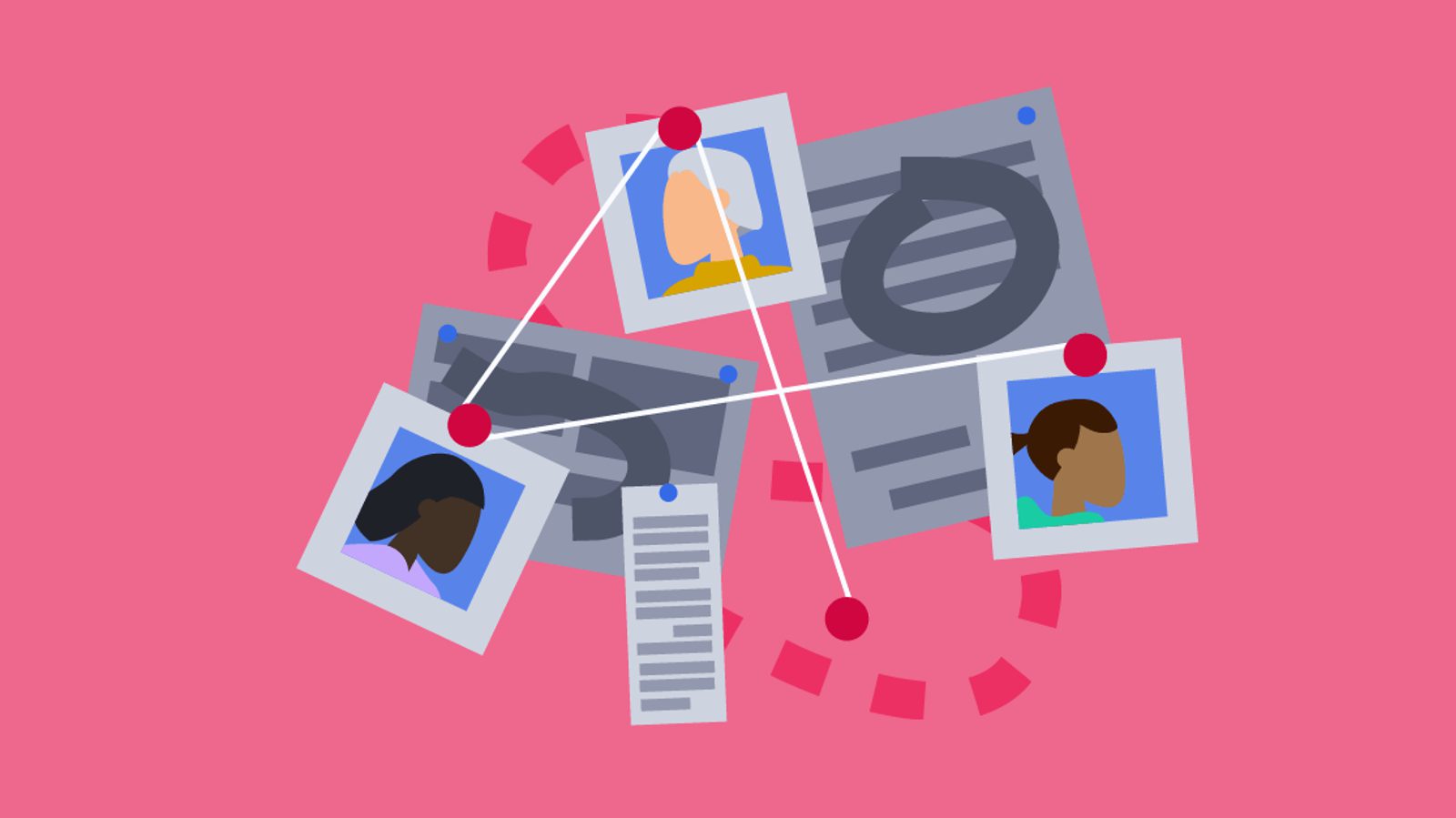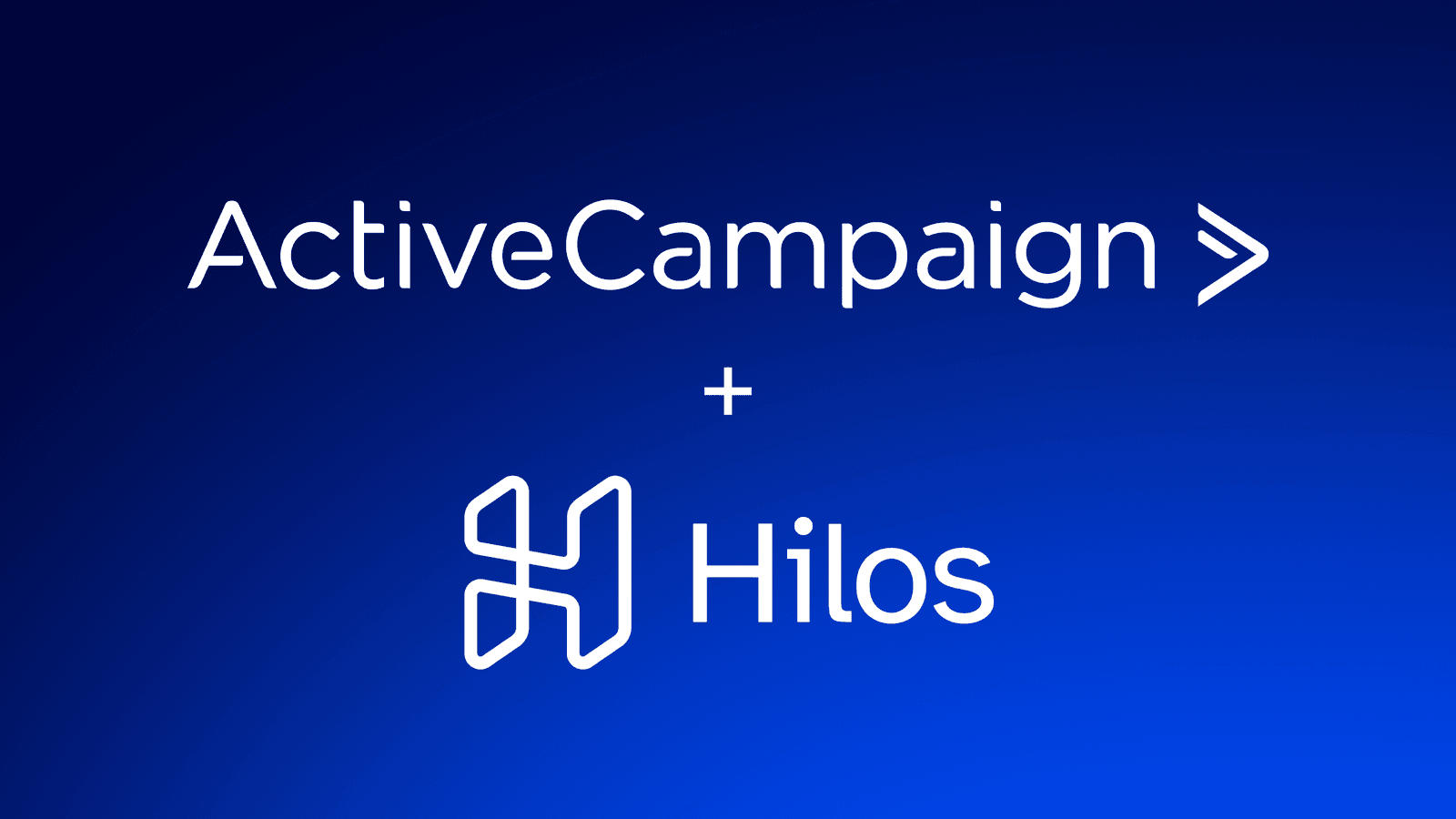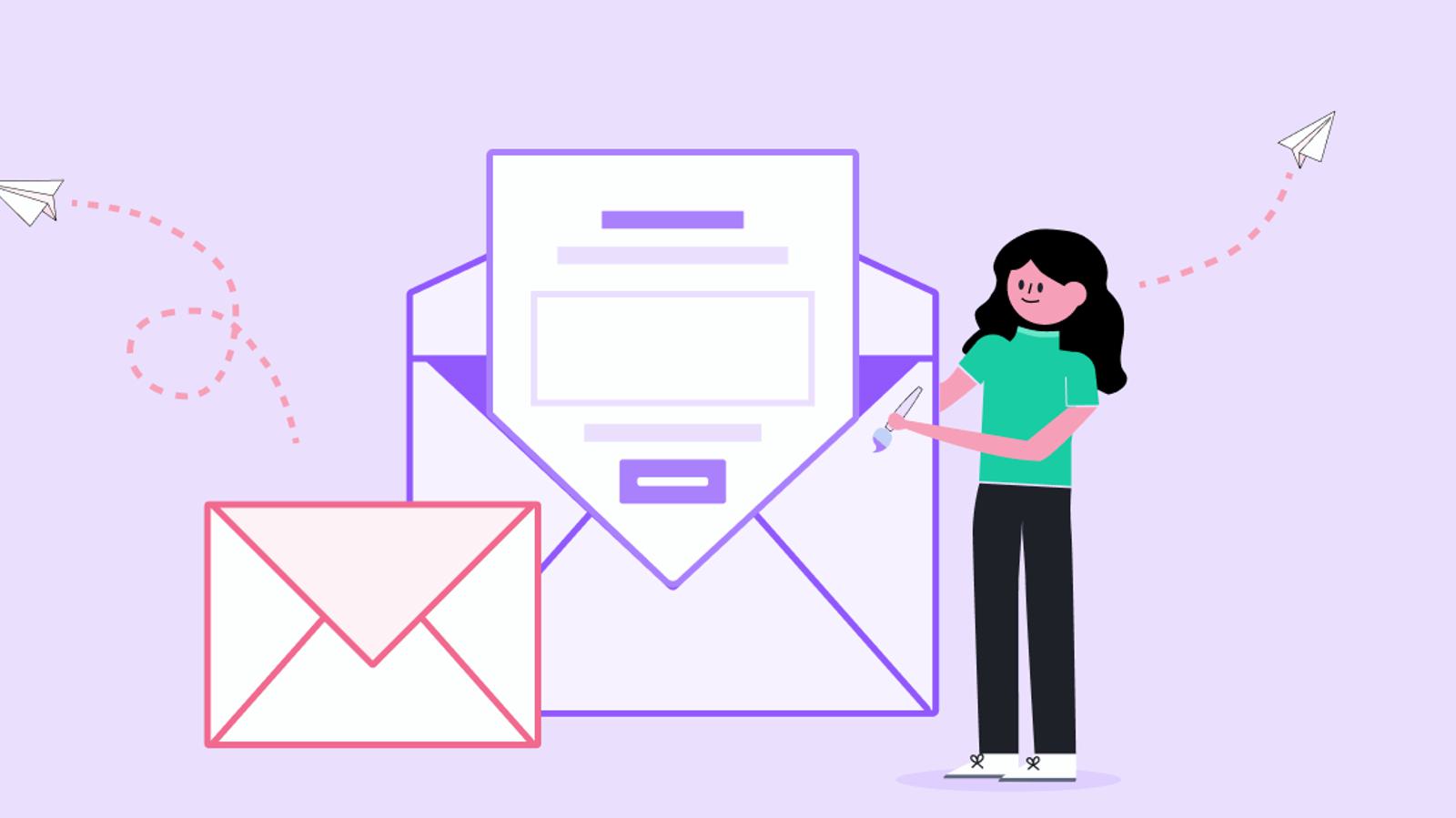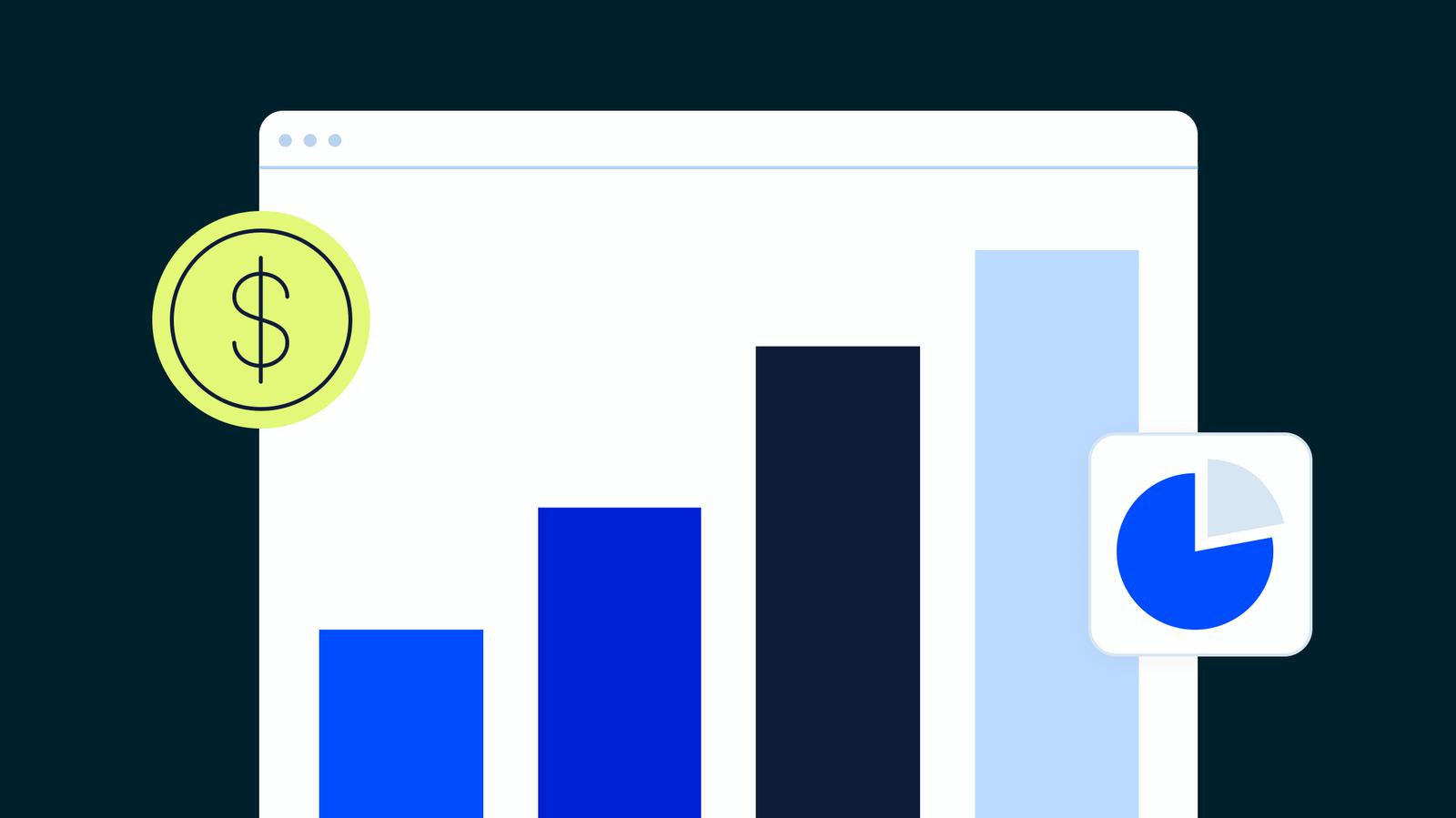How do you know you’re ready for CRM? When you feel like this:
You’re growing so fast that your brain has run out of storage room. You can’t be expected to keep an entire business downloaded to your brain and still be able to run it all smoothly. To keep your customers, you need help.
Still, the idea of using messy spreadsheets to organize your customer data makes your eyes glaze over.
Not surprising.
Missing data = lost relationships = lost sales
That’s why using spreadsheets as your CRM is a nightmare. When were they last updated? Who updated them? How can you keep track of changes?
Forget Google Sheets or Excel try a platform. That’s why a CRM exists – to keep customers from slipping through the cracks.
This post will prepare you with:
- How a CRM helps your business grow (and build revenue)
- How do you know you’re ready for CRM? 5 telltale signs that are staring you in the face
- Choosing your CRM provider - what to consider
What is a CRM?
CRM, or Customer Relationship Management, is software that helps you organize every interaction with your customers. CRM systems help you find the most qualified leads and move through your funnel (and keep your existing customers satisfied).
91% of companies with more than 11 employees now use CRM software.
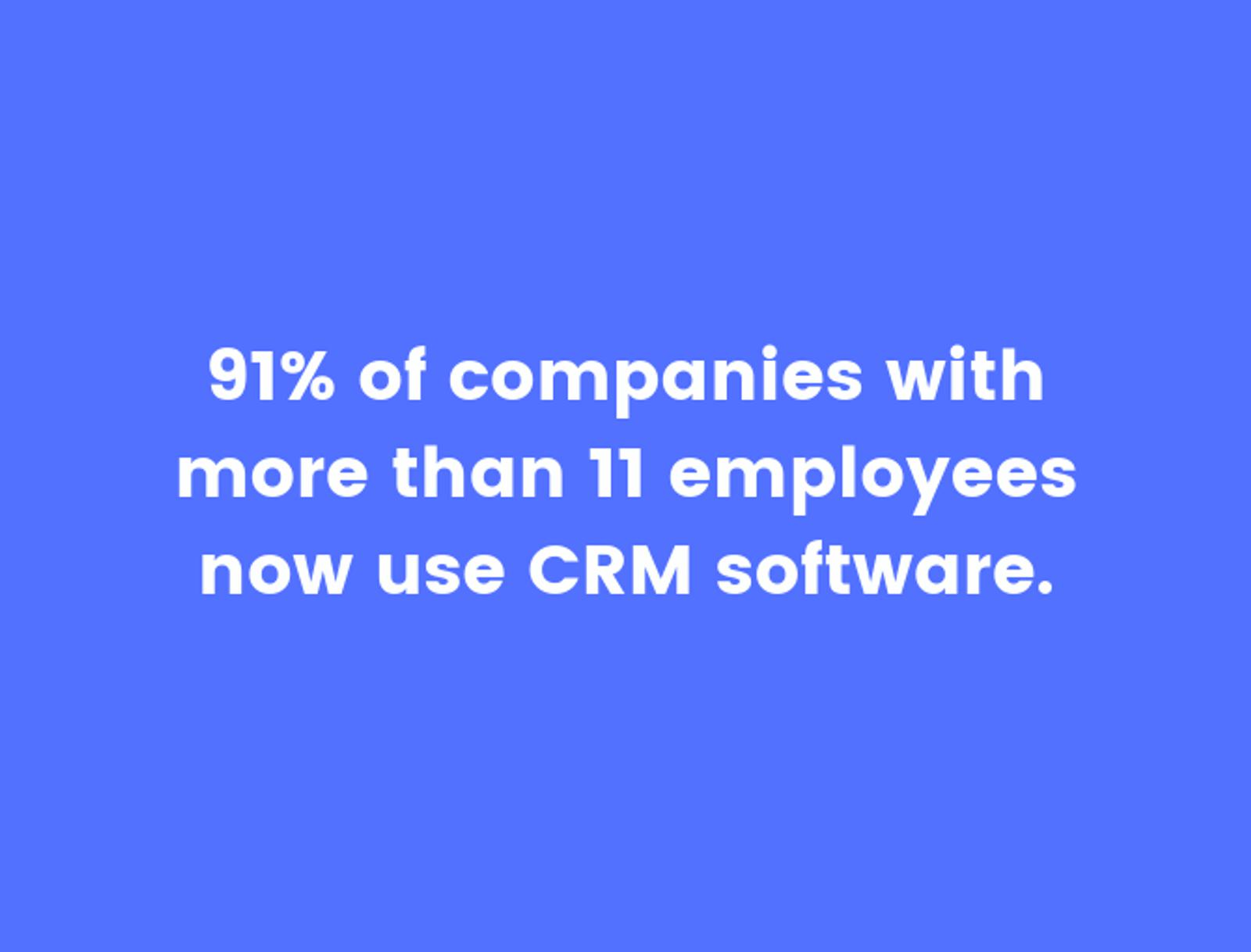
That’s no small percentage.
CRM systems help you organize:
- Leads
- Customer information (from contact information to preferences)
- Accounts details
- Sales opportunities
All in one centralized database.
CRM tech is in high demand – the CRM industry was worth over $40 billion in 2018. Why the high demand? Because it can work wonders for your business growth.
How does CRM help your business grow?
Business growth comes from making sure that all of your qualified leads become regular customers – and that current customers remain current.
According to Guidant Financial, the top challenges for small business owners are:
- Marketing and advertising
- Time management
- Recruiting and retention
- Administrative work

These are kinda important when you’re tryna get customers...and, you know, grow.
A CRM can help every customer communication feel personal, no matter how big or busy your business gets. It keeps accurate records of...
- Customer transactions
- Customer preferences
- Customer needs
- Customer concerns
When you can keep track of your customers’ pains, needs, and preferences, it’s like having the answers at the back of the book. If you know…
- What someone has recently purchased, you can recommend other products or services to them
- Something that has been a struggle for them, you can send helpful content or set up a call to help solve the issue
How can the right customer relationship management system help you grow (without the growing pains)? It helps you stay organized when you:
- Make calls
- Leave notes
- Track deals
- Schedule follow-ups (and keep track of when you’ve already followed up)
- Send emails
- Manage your sales reps
- Automate your entire sales process
- Accurately project revenue
In short, everything that you need to do to keep customers engaged.
5 signs you need a CRM
A CRM gives you…
- Better organization and track customer information
- Better communication and personalized customer interactions
- Improved customer satisfaction
- Happy revenue
But how do you know if you need a CRM right now?
Here are 5 signs that it's time for you to invest in CRM:
- You’re growing but can’t hire more help
- You have too much info stored in too many places
- Keeping track of all your communication is overwhelming
- You don’t have a consistent sales workflow
- You want to give better customer support
1. You’re growing but can’t hire more help
Growth is great! And with more growth, you need more resources.
But you don’t always have the budget to hire someone. And even if you did...is organization a big enough problem? Is it even worth hiring someone, or can you just deal with it yourself.
A CRM platform along with an applicant tracking system can organize everything for you – automatically – and do a better job than a person ever could.
The smooth alignment between sales and marketing is hard to resist.
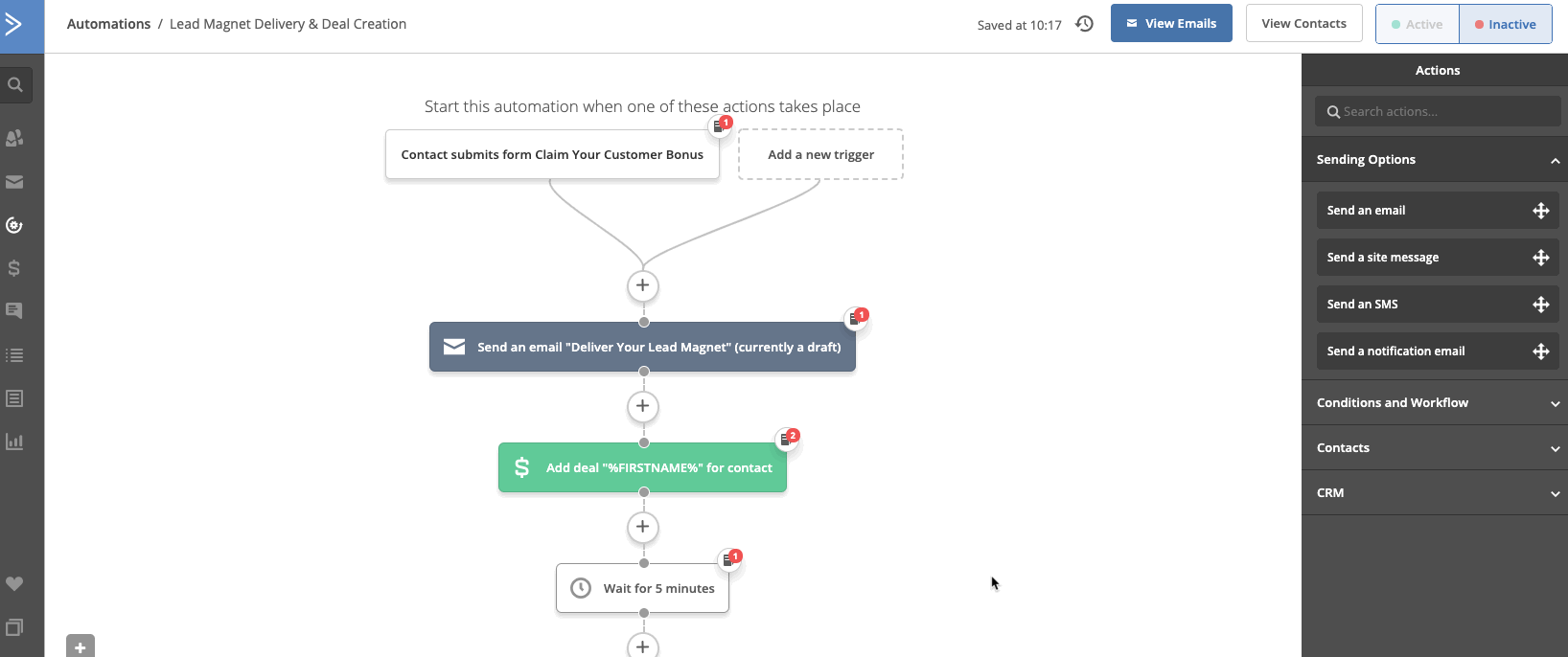
As a lead moves through an automation, they can be added to a deal to keep track of marketing and sales progress simultaneously.
With a CRM to handle all your extra organizational work, you get time back to do things like:
- Learn more about customer pain points you can address
- Try to find even more customers
- Think about what things you can do to keep growing
Say you’re a small business owner with your own yoga studio. Your customers might be dealing with pain points like…
- Aching muscles and joints
- Stress
- Inflexibility
- Getting into healthier routines
Not only can this info help you figure out how to cater even better to your existing customers, you can use it as outreach to find new customers who are looking for ways to deal with the same pains.
And all the while, your CRM is keeping all your customer data safe and sound.
2. You have too much info stored in too many places
Without CRM, you spend wayyy too much time looking for the info you need.
You have a ton of info on everyone you talk to, like:
- Name
- Phone number
- Email address
- Mailing address
- Tags
- An entire relationship history between you and them
Who can keep track of all of that at once??
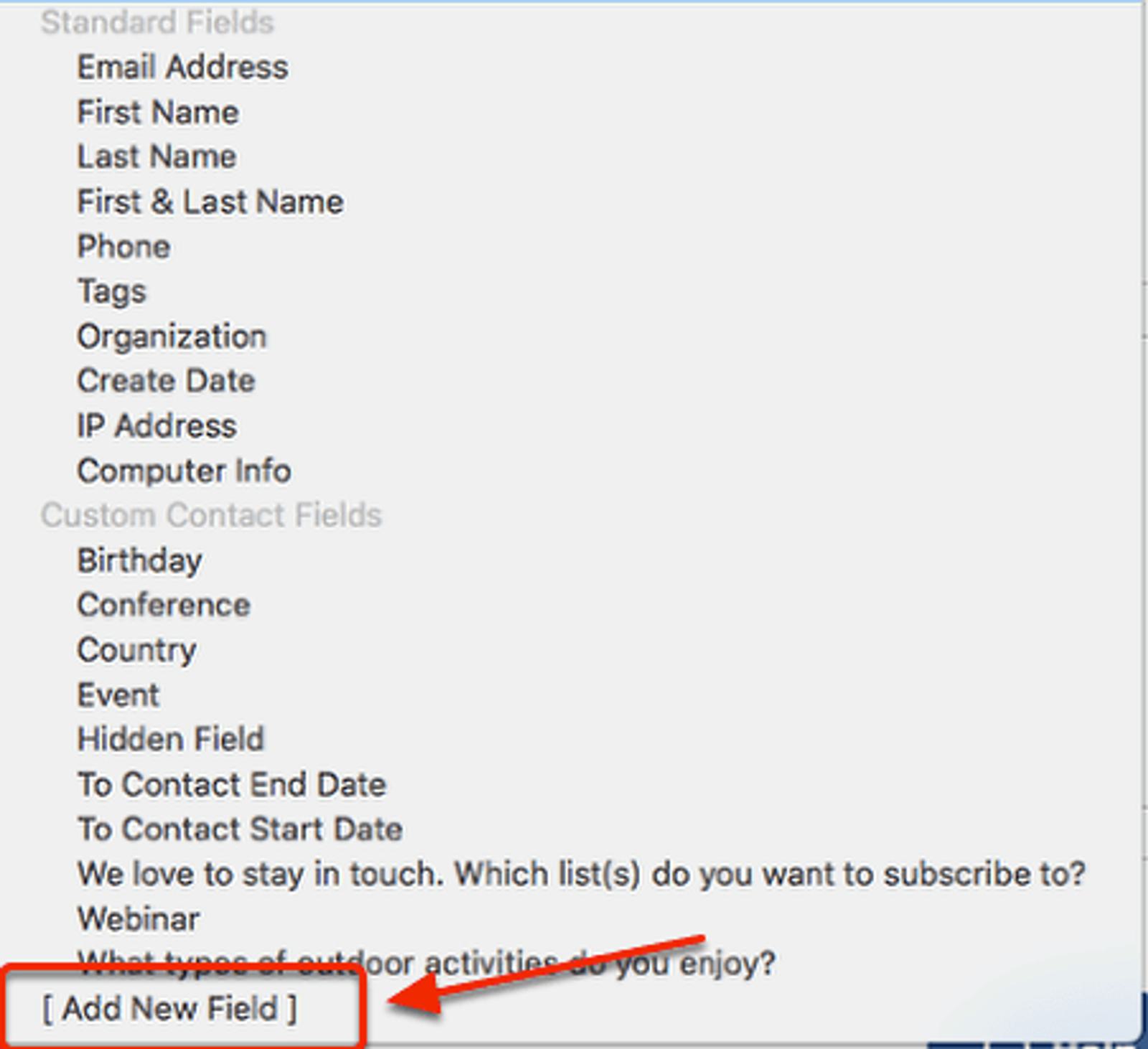
Too much contact info, not enough brain. CRM to the rescue!
Here’s an easy question for you: once you collect customer info don’t you want easy access to it?
Of course, you do. Because when you can’t, customer communication slips through the cracks. And then, your retention rates start to crash.
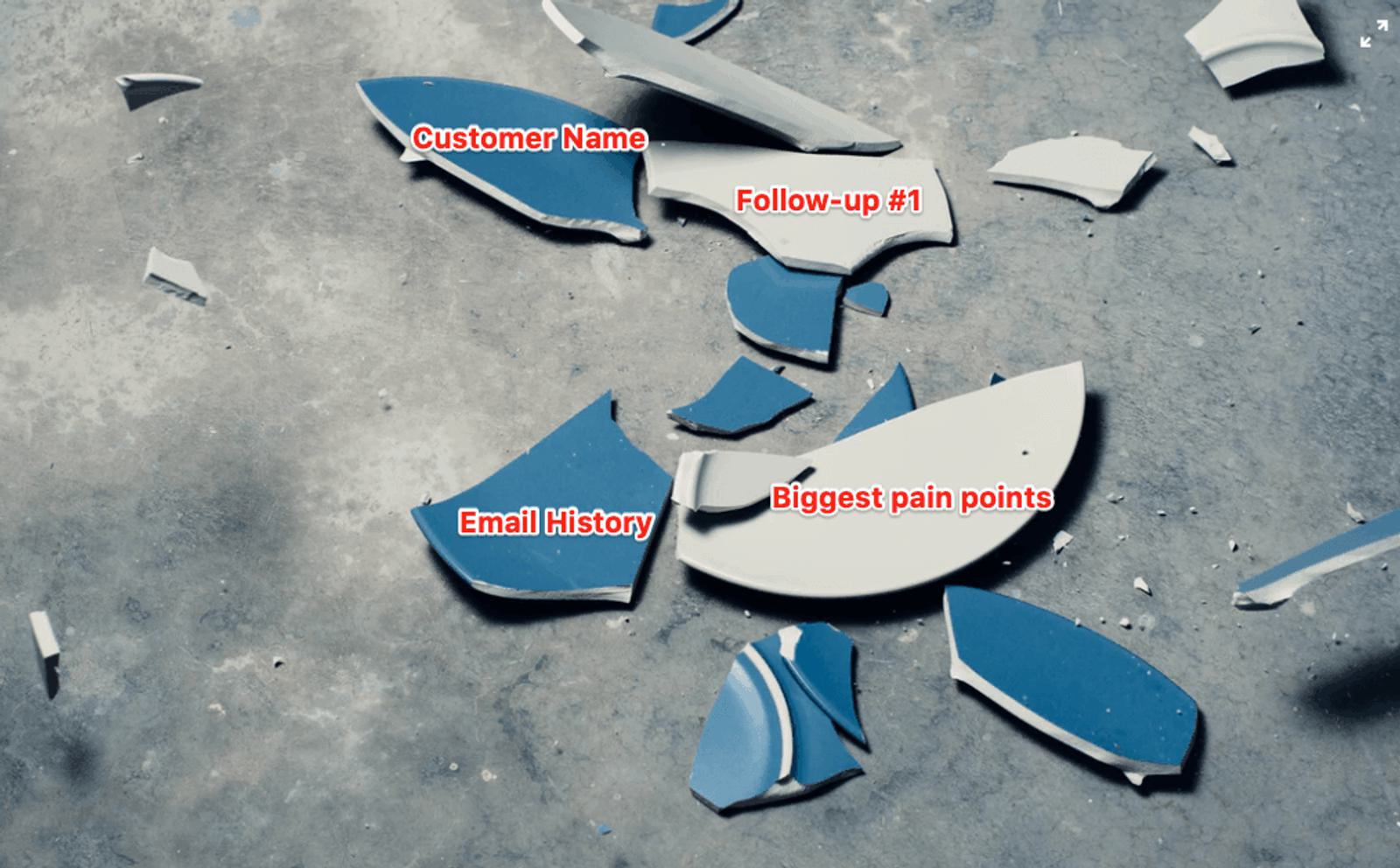
Be careful.
This used to be a problem 24 Hour Fitness, one of the world’s largest fitness chains.
In 2015, 24 Hour Fitness wanted to give a completely affordable, personalized experience for their users – but they didn’t have a digital presence or a CRM to keep track of everyone’s data.
They couldn’t tell who needed what in their fitness journey.
According to Tom Lapcevic, chief marketing officer for 24-Hour Fitness, about 5% of 24 Hour Fitness' members can afford personal training. But he also knew that customers wanted to engage on channels convenient for them outside of the hands-on trainer experience.
People wanted to connect with the business outside of the weight room to make the experience inside an even better one.
That meant using data to discover more about their customers. The problem? Their data was allllll over the place.
"In addition to being a land-based operator of fitness centers, we were also a traditional marketing company doing direct mail, using traditional channels. We looked at Amazon, we looked at Netflix and thought, 'How do we evolve from being land-based to becoming a solution provider on a 24-hour basis for our members?'" - Tom Lapcevic, CMO 24-Hour Fitness
So 24-Hour Fitness went digital. They created:
- A mobile app
- Loyalty programs
- New content
- And (you guessed it!) a CRM to house and organize all of their customer data.
After that, Lapcevic reported that 24 Hour Fitness had its most successful year in its 30-plus-year history, generating its highest revenue and profit ever.
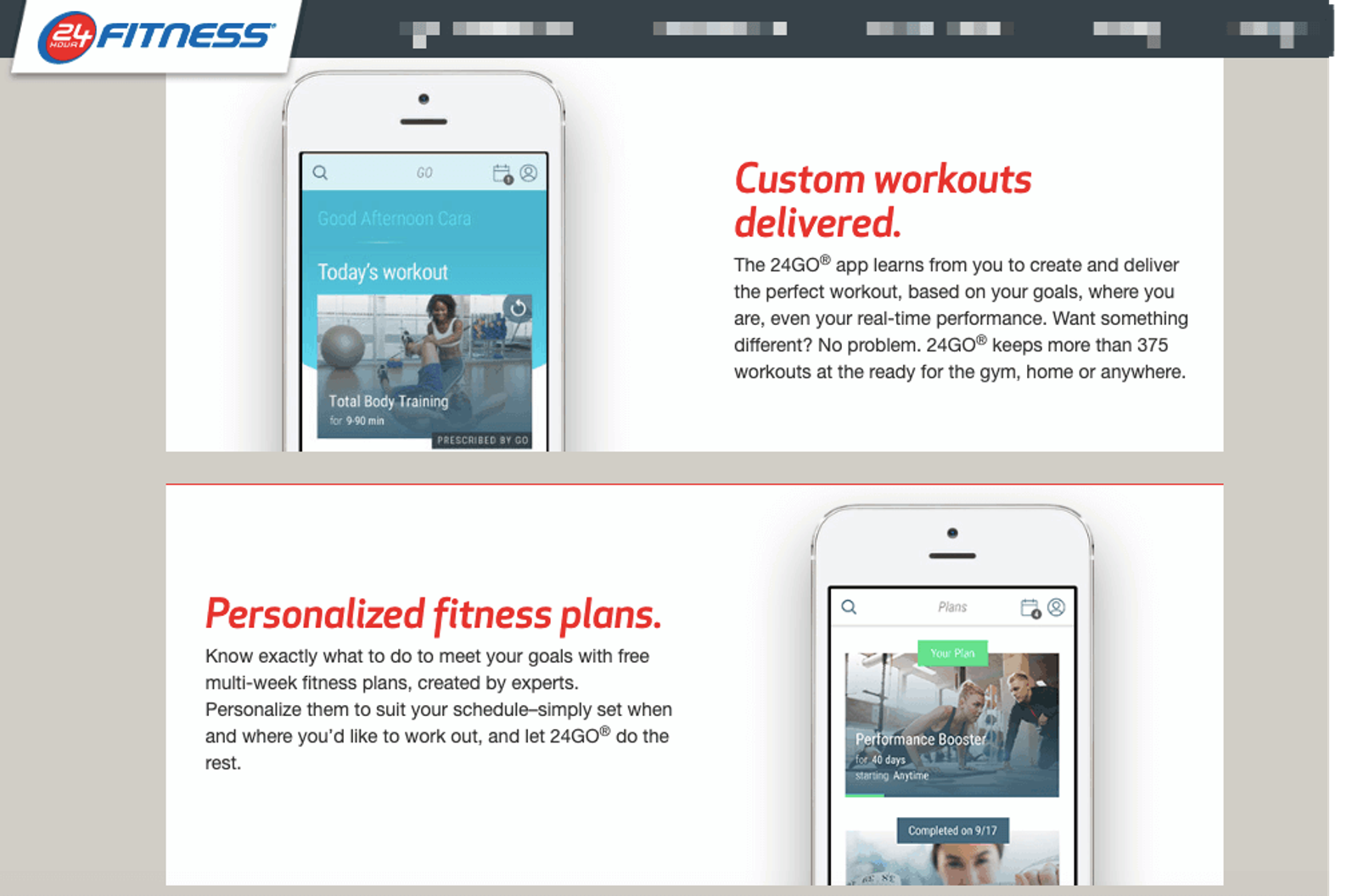
"We did a lot of consumer research to identify how we could use technology to create mass customer personalization. Our goal was to deliver a solution we can scale to all of our members and take advantage of their consumer preferences." - Tom Lapcevic, CMO 24-Hour Fitness
The biggest takeaway from Tom and 24-Hour Fitness is that fragmented, loose data gets in the way of profitability.
- Sticky notes
- Spreadsheets
- Mental notes
- Word docs
- Paper calendars
There are too many ways to lose data. If manual labor and endless typing have sucked away your time, it’s time to get extra automated help from a CRM.
3. Keeping track of all your communication is overwhelming
Have you stopped to think about how many ways you can communicate with a customer?
- Emails
- Phone calls
- Text messages
- In-person meetings
- Social Media
And not just one of each – we’re talking multiple messages across a variety of channels. It’s a lot to keep track of, and a CRM can keep a detailed account of every communication interaction in one place.
Take a look at how ActiveCampaign CRM handles that history.
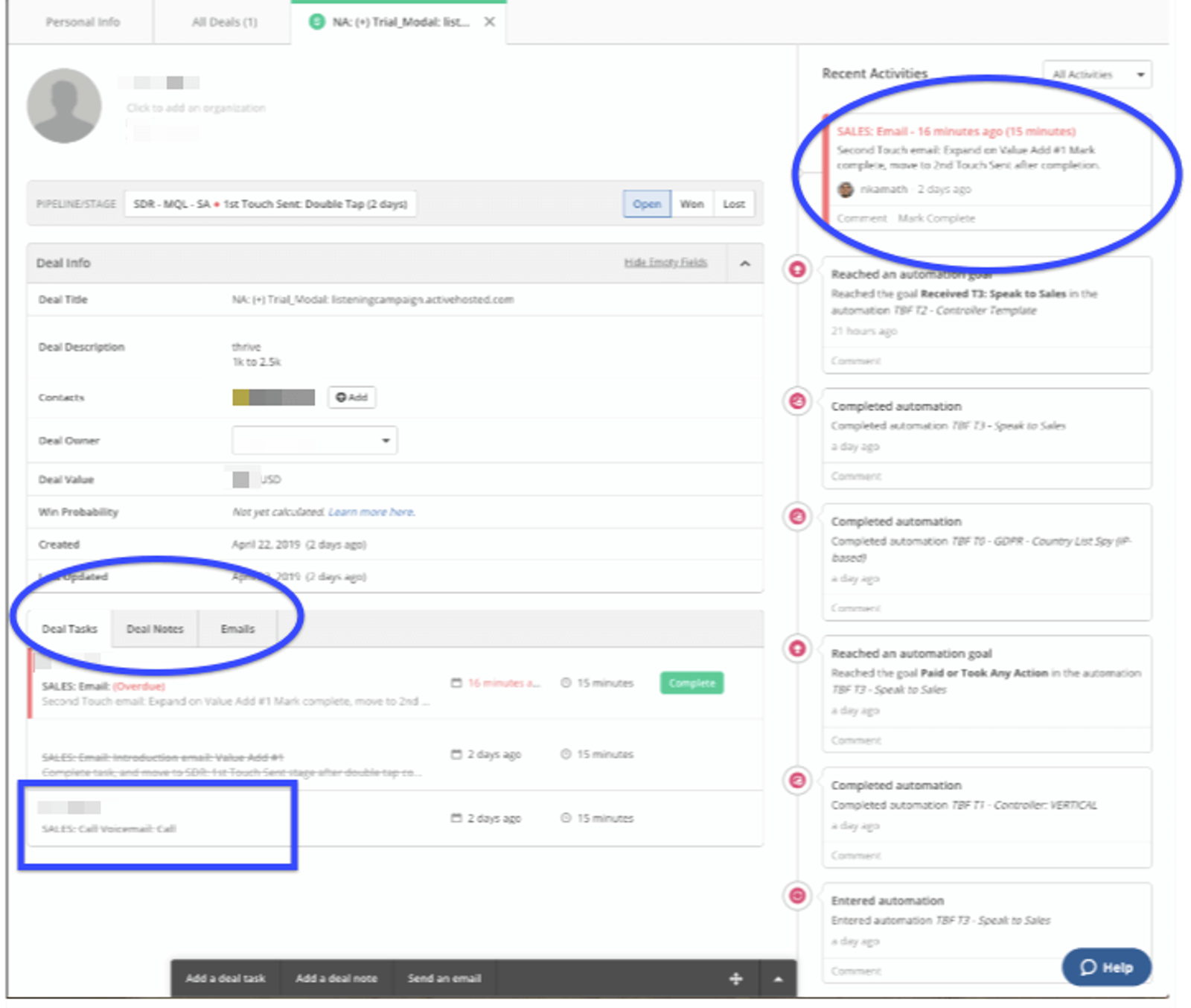
In our Deals view, you can see emails, notes, and other communications with a specific contact in one place.
With CRM, you can easily access all your customer info in one place.
4. You don’t have a consistent sales workflow
Imagine you sign up for a course. You show up, ready to get started, and the instructor just looks at you and says, “what do you want to know?”
Um, that’s why you’re here, isn’t it? To guide?
As the business, it’s up to you to create a product funnel for your leads to follow. You have to consider things like:
- Do you know how leads enter your sales funnel?
- What touchpoints do you need to hit in the customer relationship?
- How often do you need to follow-up so that you don’t lose a lead?
If you don’t have a consistent sales process, it’s going to be hard to sell.
A CRM with sales automation can help guide leads through your funnel.
In ActiveCampaign’s Deals CRM, you send your deals (or lead opportunities) through your funnel via pipelines and stages.

Easily check the status of your different deals.
Jeff Irving of (MLO) Shift uses ActiveCampaign's Deals CRM to manage his mortgage business. Jeff uses deals and pipelines to capture leads, send internal reminders, and engage with contacts according to their preferences.
For his business, Jeff uses 3 pipelines:
- Cold leads who enter through advertising portals like Facebook ads
- Warm leads and referrals
- Qualified leads who are going through the mortgage loan process
Each pipeline has multiple stages. Contacts move through each stage based on the actions they take.
How Jeff Irving Uses Deals CRM Pipelines
“First with cold leads, I do Facebook advertising, offline direct mail marketing, all kinds of different advertising where we’re bringing in people who’ve never heard of us.
Typically a lot of our cold lead gen is coming from Facebook and a lot of times we’ll leverage things that are news. People who are searching to buy homes, they don’t want to deal with the mortgage guy. They want the house. So as the mortgage guys, we want to give them the nugget that they want. We want to give them the house, so we’ll run an ad about a new listing.
Second, we’ve got warm leads and referrals. One of the major sources of business for a mortgage professional is referrals from real estate partners, financial partners. At the beginning, I need a way to track those referrals.
Third, the actual in-process loan experience. Once they’ve been qualified and they’ve responded, and you can say, “Okay, this is a good prospect,” and then they enter our deals pipelines.”
You can listen to Jeff’s full story on our ActiveCampaign podcast.
Jeff’s main use for a CRM is to make sure he never loses track of a referral. Once he solved that, he considered this question: “What are my next biggest needs?”
And more pipelines followed.
5. You want to give better customer support
Mo’ people, mo’ problems.
Yes, you want to have a lot of customers. But just like having a new puppy, that customer requires a lot of care and support. And it can get overwhelming.
If you’re struggling to keep up with support emails, a CRM is a lifesaver. A CRM with customer support features can ease your support outreach by bringing all messaging and conversation history into one stream.
You can collect and report on data about customer issues, which gives you the ability to make better, longer-term fixes to customer problems.
How does CRM help you with support?
- It can tell you customer health scores that show you who to reach out to
- You can keep track of follow-ups and never miss a help request
- You can look back at communication history to see what has already been covered
- You can use all of this information to learn from and improve ongoing support
Choosing your CRM: what you need to think about
“If you’re asking around about what the “best CRM” solution is, you’re asking the wrong question.” – JP Lessard, President, Business Software Solutions at Miles Technologies .
Because CRM success is defined differently between organizations, you need to understand your specific requirements and goals. Then make sure that the CRM technology you choose meets those goals.
Before you start shopping around, take stock of the following:
- What are other people saying in reviews?
- What’s on your features wish list?
- What integrations will be most important?
1. What are other people saying in reviews?
Social proof is one of the top ways people make decisions (especially buying decisions). If you’re looking to invest in a CRM, don’t commit without reading reviews.
What will you find in them?
- Pain points (does this solve the problems I have?)
- Features (does this have the features I need? Do they work?)
- Problem fixes (what problems does this fix? What problems does it still have?)
Take a look at some CRM reviews that have all of these:

You’ll find yourself saying “I totally get that!” A lot.
84% of people trust online reviews as much as they trust friends. When it comes to choosing your CRM, your business should too.
2. What’s on your features wish list?
What are your goals for CRM? Probably things like...
- Finding and managing new customers
- Moving qualified leads through the funnel
- Warming up those cold leads
- Hanging onto your existing customers
- Identifying customer pain points
- Learning from marketing successes and failures
A CRM helps businesses make their sales and marketing processes more efficient. To get there, you need to identify where the gaps are, and what CRM features could help fill them. Look at your existing business processes and their current outcomes, then compare them to the desired outcomes and create a CRM wish list.
What wish list items do you need to achieve those goals? Here are some of the most essential:
- Custom fields and pipelines
- Desired triggered activities
- Required integrations
- Required workflows
Why are these types of features important?
Say that you want to reduce the time your sales team spends managing their leads and increase the time they spend talking to customers.
You need a CRM that lets you do things like trigger a follow-up call reminder after a lead has been inactive for X number of days. Or you need a way to create custom pipelines for activities like scheduling demos.

Schedule demos easily.
Before you commit to a CRM, make sure it has what you need to be successful.
3. What integrations will be most important?
Make sure your platform integrates with the tools you already use.
You will use different integrations depending on your CRM business needs, but one helpful way to use them is to manage your communication.
Say you need a calendar tool to keep track of scheduled follow-ups. You can integrate apps like…
- Calendly
- Schedule Once
- Acuity
What if you need a way to store documents in a deal? There are integrations for creating documents and e-signatures, like…
- WebMerge
- HelloSign
And the best part? You can use integrations like these to create tasks in your automations.
Now you’re really ready. Find the best CRM for your business!

